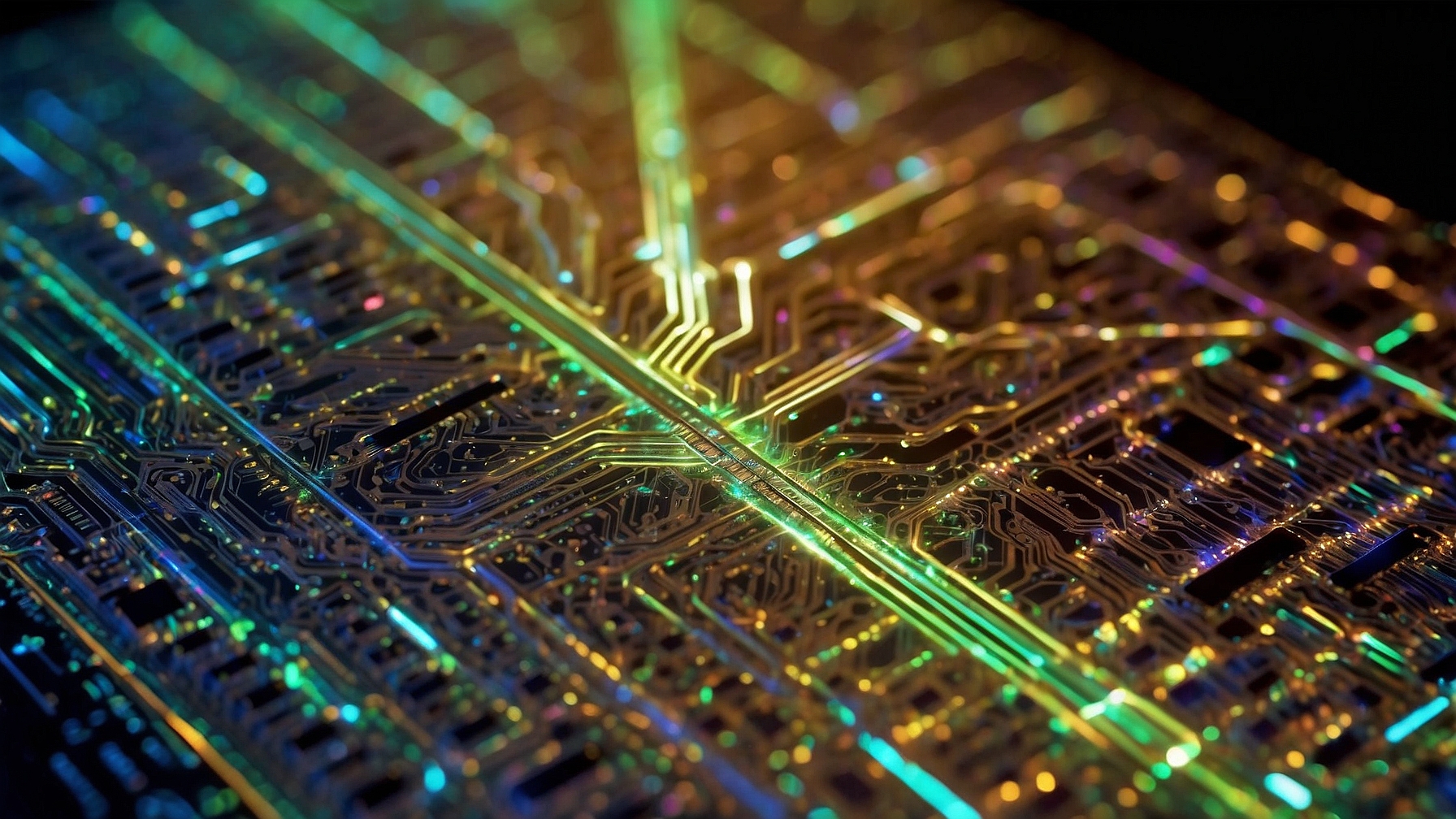AI Scientists Unveil Breakthrough Chip That Leverages the Speed of Light to Make Apps Faster Than Your Wi-Fi Can Ruin Them
In a move that’s set to make your smartphone even smarter than you and its next update even more confusing, a team of researchers from MIT, with no better way to spend a decade, have developed a shiny new photonic processor. This high-tech piece of wizardry aims to perform deep neural network operations using light—because, you know, regular electricity was just too mainstream.
“Using light for computations,” explained fictional Dr. Ima Brighter from the Research Lab of Illuminatingly Complex Things, “isn’t just faster. It’s like putting a rocket engine where previously you had only duct-taped a scooter.”
But don’t start thinking you can ditch your overloaded CPU just yet. This magical chip purportedly does what current hardware does, but with a twist: it’s less of a power hog. Finally, the planet can breathe a sigh of relief as your apps drain your battery more slowly, while you continue the uphill battle against the universe’s most complicated sudoku in real-time.
Researchers promise that this photonic chip could revolutionize everything from lidar and astronomy to the pesky problem of buffering during video calls. Thanks to this invention, lag times could soon be shorter than your boss’s patience during the Monday morning Zoom meeting.
“Now, not only can we run optical neural networks at insane speeds, we also get to sound like we’re dabbling in dark arts!” chuckled Professor Ray Flash, another non-existent yet profoundly quotable scientist.
Of course, building this wizardly contraption wasn’t all rainbows and sunshine. One major hurdle was getting photons, who are delightfully aloof, to schmooze with electrons in a way that didn’t involve expensive dinners or politically correct HR interventions. According to our sources, aka nobody confirming this is an actual challenge, one scientist allegedly remarked, “Honestly, it’s like trying to coax a cat to fetch.”
Using creative nomenclature and sheer tenacity, the researchers invented “NOFUs” (which insiders say stands for “Not-Ordinary F#&$%# Units”) to hurdle over these obstacles. These NOFUs supposedly allow for nonlinear operations, which means they do not just light up like Christmas but also perform complex tasks like deciding which TV series is worth binge-watching based on your precarious emotional state.
Looking to the future, the team says they are eager to scale up this technology. Picture this: your coffee maker powered by light, because why not? And soon, algorithms leveraging optics could replace the need for your grandmother’s knitting prowess in solving any unforeseen issues.
This cutting-edge tech was graciously funded by the U.S. National Science Foundation, among others, presumably to ensure America remains a beacon for innovation rather than just a warning for overly ambitious grads. Thanks to diligent scientists and encouraging amounts of taxpayer dollars, we are now one step closer to living in a universe where computers act faster than our neurons can say, “Did I leave the oven on?”




